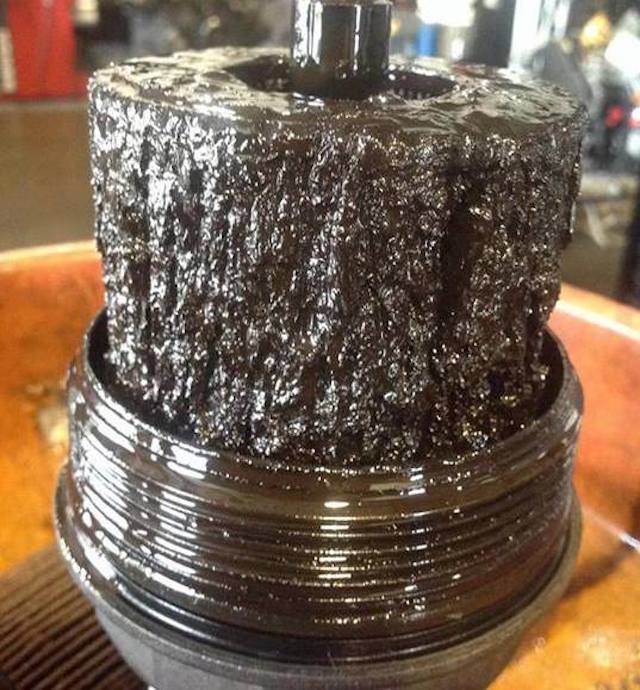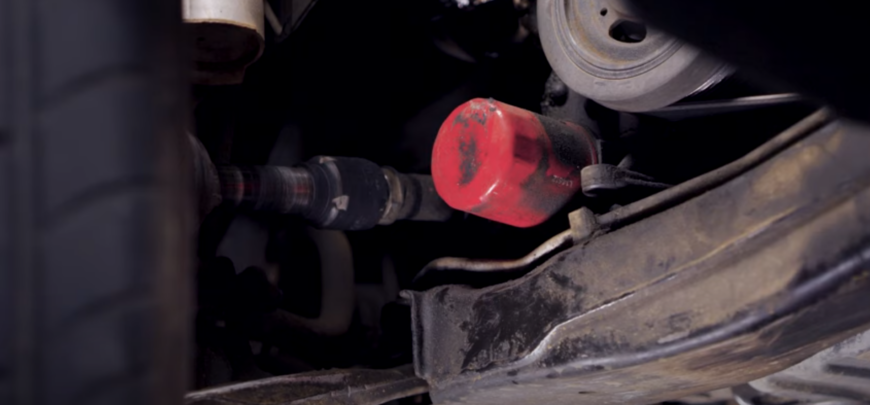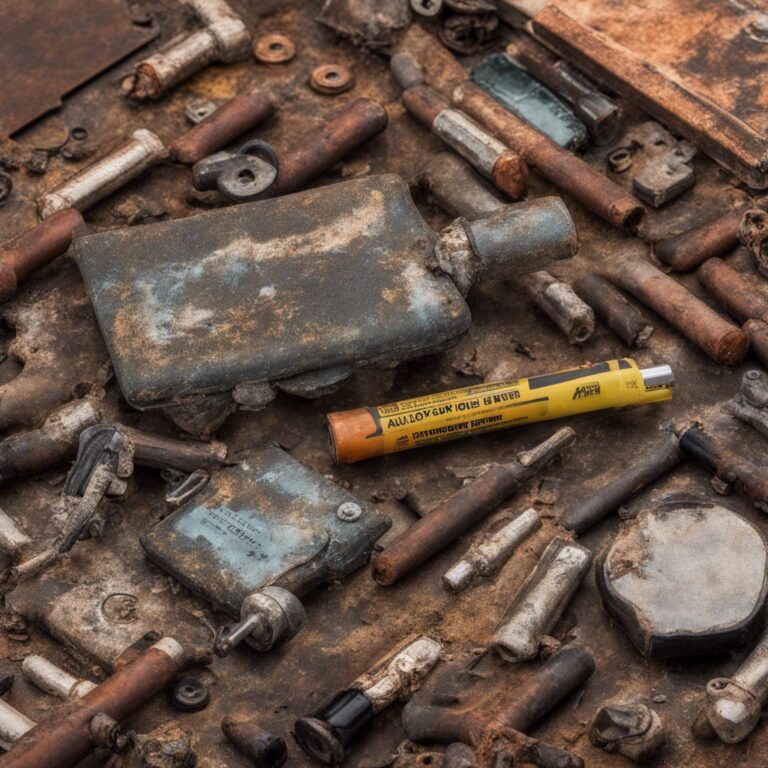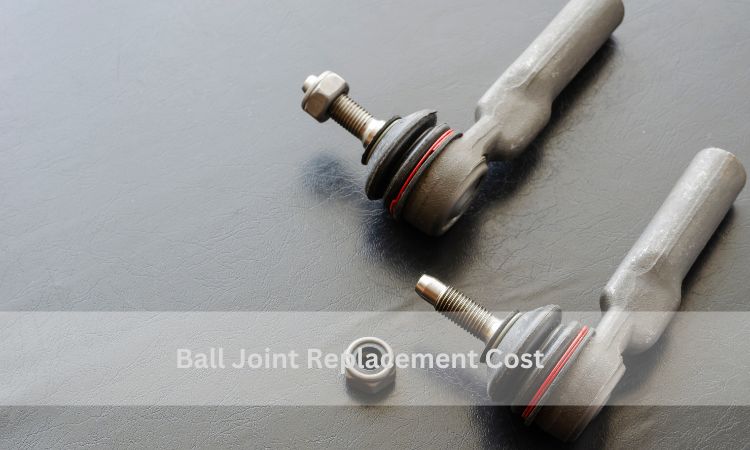How to Tell If Oil Filter is Bad
To tell if an oil filter is bad, check for dirty oil, engine noise, or low oil pressure. Signs of a bad oil filter include dirty oil, engine noise, and low oil pressure.
Typically, these symptoms indicate that the oil filter is not functioning properly and needs to be replaced promptly. A faulty oil filter can cause serious damage to your engine if not addressed promptly. Therefore, it is crucial to be aware of the signs that indicate a bad oil filter.
By monitoring your engine’s performance and conducting regular maintenance checks, you can ensure that your oil filter is in good condition and prevent potential engine issues.

Credit: www.youtube.com
Signs Of A Bad Oil Filter
Decreased Fuel Efficiency
When an oil filter is clogged or failing, it can lead to decreased fuel efficiency in your vehicle. This happens because dirty oil cannot properly lubricate the engine, causing it to work harder and consume more fuel.
Low Oil Pressure
In the presence of a bad oil filter, there is a risk of low oil pressure, which can be dangerous for your engine’s health. A clogged filter restricts the flow of oil, leading to inadequate lubrication and subsequent low oil pressure.
Metallic Engine Noises
One of the clear indications of a bad oil filter is the emergence of metallic engine noises. This is due to the lack of proper lubrication, causing metal components to rub against each other, resulting in noisy operation.
Causes Of A Bad Oil Filter
Identifying a bad oil filter is crucial in maintaining your engine’s health. Two common causes are:
Clogged Filter Element
A clogged filter element restricts oil flow, leading to decreased lubrication. Detrimental debris like dirt can block the filter, impairing its efficiency and putting the engine at risk.
Faulty Bypass Valve
A faulty bypass valve fails to regulate oil pressure correctly. This malfunction can result in inadequate filtration or oil leakage, jeopardizing the engine’s performance.
Effects Of A Bad Oil Filter
A bad oil filter can have detrimental effects on your vehicle. Signs of a bad oil filter include decreased engine performance, increased engine noise, and dirty or dark-colored oil. It is crucial to inspect and replace your oil filter regularly to ensure optimal engine health.
Engine Damage
Contaminants can bypass a bad oil filter, leading to grit damaging engine parts.
Reduced Performance
Inadequate oil filtration can cause sluggish performance and diminished engine efficiency.

Credit: www.gopurepower.com
How To Check For A Bad Oil Filter
Ensuring that your oil filter is in good condition is crucial for the health and longevity of your vehicle’s engine. A bad oil filter can lead to a host of unfavorable consequences such as poor engine performance, engine wear, and decreased fuel efficiency. Here are a few key methods to help you determine if your oil filter is in need of replacement.
Inspecting The Filter Element
One way to check for a bad oil filter is to inspect the filter element for any signs of clogging or debris accumulation. Carefully remove the oil filter and visually examine the filter element. If it appears dirty or clogged, it is likely time for a replacement. Debris and contaminants can hinder the filter’s ability to effectively trap harmful particles from circulating throughout the engine, potentially causing damage to critical engine components.
Checking Oil Pressure
Another method to assess the condition of your oil filter is to monitor the oil pressure. Low oil pressure can be an indicator of a clogged or faulty oil filter. Use an oil pressure gauge to measure the oil pressure while the engine is running. If the pressure is lower than recommended, it may signify that the oil filter is not allowing oil to flow freely through the system, necessitating a replacement.
Listening For Engine Noises
A distinct sign of a bad oil filter can be detected through abnormal engine noises. Listen for any ticking or clattering sounds coming from the engine, which could indicate insufficient oil flow due to a clogged filter. These unsettling noises can signify that the engine is not receiving adequate lubrication, a condition that can lead to severe engine damage if not promptly addressed.
Preventive Measures For A Healthy Oil Filter
Good maintenance of your oil filter is essential for the overall health and performance of your vehicle. Regular filter inspections and following the manufacturer’s recommendations are key preventive measures to ensure your oil filter functions optimally. By taking these measures, you can avoid potential engine damage and maintain a smooth-running vehicle.
Regular Filter Inspections
Regular inspections of your oil filter are crucial for early detection of any issues. By visually examining the filter, you can determine if it’s in good condition or if it needs to be replaced. Here’s what to look out for:
| Signs of a Bad Oil Filter | Action |
|---|---|
| Clogged or Dirty Filter | Replace the filter |
| Metallic Particles in the Oil | Investigate for possible engine issues |
| Damaged Filter Element | Replace the filter |
| Excessive Oil Leakage | Inspect for loose connections or worn gaskets |
Performing regular inspections and promptly addressing any issues will help maintain the efficiency and lifespan of your oil filter.
Following Manufacturer’s Recommendations
The manufacturer provides specific guidelines for the maintenance and replacement of your oil filter. It is crucial to adhere to these recommendations to ensure the optimal performance and longevity of your filter. Here are some key aspects to consider:
- Filter Replacement Interval: Manufacturers often specify the recommended interval for replacing the oil filter. By following this interval, you can prevent potential problems associated with a clogged or worn-out filter.
- Filter Type and Specifications: Use the recommended filter type and specifications indicated by the manufacturer. Using the right filter ensures proper filtration and protection for your engine.
- Oil Change Frequency: The oil filter is typically replaced during an oil change. Following the manufacturer’s recommended oil change frequency helps maintain a healthy filter and ensures proper lubrication for your engine.
By following the manufacturer’s recommendations diligently, you can ensure your oil filter functions optimally and protects your engine from unwanted damage.

Credit: www.autozone.com
Frequently Asked Questions On How To Tell If Oil Filter Is Bad
How Do I Know When My Oil Filter Is Bad?
You’ll notice a bad oil filter when there’s a drop in oil pressure or engine performance. Look for oil leaks or dirty oil. Keep to the manufacturer’s recommended replacement schedule to avoid engine damage.
How Do I Know When My Oil Filter Needs To Be Replaced?
Replace your oil filter every 5,000-7,500 miles or as recommended by your vehicle’s manufacturer. Check for signs of a clogged or dirty filter like decreased engine performance or dark, dirty oil during oil changes.
What Happens If You Drive With Bad Oil Filter?
Driving with a bad oil filter can cause engine damage due to contaminated oil circulation. It may lead to decreased engine performance and potential breakdowns. Regular oil filter maintenance is crucial for optimal vehicle function.
How Do You Check An Oil Filter?
To check an oil filter, remove it and inspect for any metal particles or debris. Ensure it’s not clogged or damaged, and replace if necessary. Look for leaks and make sure it’s securely attached. A clean and undamaged filter is crucial for proper engine performance.
How Do I Know If My Oil Filter Is Bad?
If you notice a decrease in engine performance, metal particles in oil, or oil leaks, your oil filter may be bad.
What Are The Signs Of A Clogged Oil Filter?
Signs of a clogged oil filter include decreased fuel efficiency, engine overheating, and a warning light on the dashboard.
How Often Should I Change My Oil Filter?
It is recommended to change your oil filter every 3,000 to 5,000 miles or as specified by your vehicle’s manufacturer.
Conclusion
Regular oil filter inspection is crucial for engine health. Look out for signs such as dirty oil, engine noise, or decreased performance. Addressing a bad oil filter promptly can prevent costly engine damage. By staying vigilant and taking action as needed, you can keep your vehicle running smoothly and efficiently.


